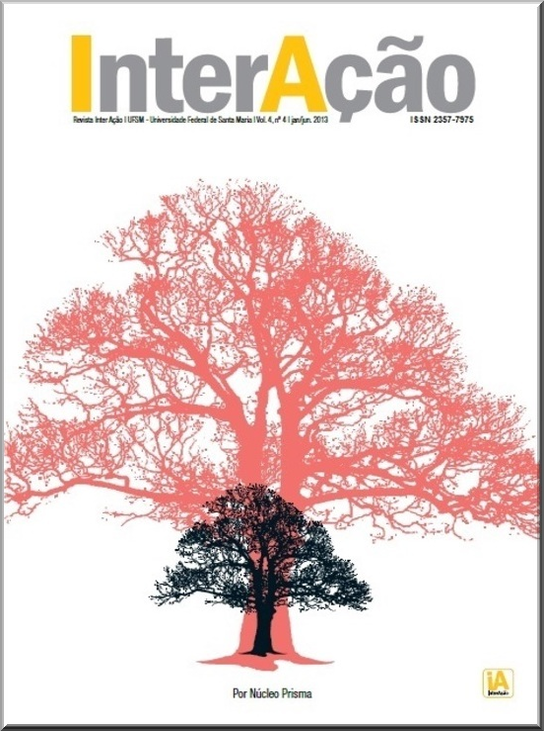Revolutionary medicine: a response to corporatizing healthcare in India
DOI:
https://doi.org/10.5902/2357797512744Palavras-chave:
healthcare, revolution, medicine, Doctor, Che Guevara.Resumo
This article explores Che Guevara’s notion of “revolutionary medicine” and how it is imperative to challenge the corporatization of healthcare in a developing nation such as India where millions live under subhuman conditions owing to lack of basic necessities that constitute any definition of a human life. With the corporatization of healthcare the deprivation gets further magnified creating the grounds for a social revolution. The notion of “revolutionary medicine” helps us analyze the role of corporatization of healthcare in furthering the haves-have nots divide, the need for nationalization of healthcare, the possibilities of a social revolution and the role of a revolutionary doctor in changing the order. Political institutions are formed upon the consideration of what will frequently tend to the good of the whole, although now and then exceptions may occur. Thus it is better in general that a nation should have a supreme legislative power, although it may at times be abused.
Downloads
Referências
ANDERSON, Jon Lee. Che Guevara – A Revolutionary Life. New York: Grove Press, 1997.
BENJAMIN, Walter. The Work of Art in the Age of Mechanical Reproduction. 1936. Walter Benjamin Archive. Web. Feb. 2005.
BHAGWATI, Jagdish. In Defense of Globalization. New York: Oxford University Press, 2004.
BLAKE, William. The Marriage of Heaven and Hell. 1790-93. The Alchemy Website. 7 May 1995.
BOOKCHIN, Murray. Social Anarchism or Lifestyle Anarchism: an unbridgeable chasm. Edinburgh and San Francisco: AK Press, 1995.
BOSWELL, James. The Life of Samuel Johnson. London: Penguin, 2008.
CASSELL, Eric. J. The Nature of Suffering and the Goals of Medicine. New York and Oxford: Oxford University Press, 1994.
DUARA, Prasenjit. Decolonization – Perspectives from Now and Then. London and New York: Routledge, 2004.
DOSAL, Paul J. Comandante Che. University Park: The Pennsylvania State University Press, 2003.
DYSON, Freeman. Origins of Life. Cambridge: Cambridge University Press, 2004.
ECONOMY WATCH. Poverty in India, Economy Watch. Sítio web. s/d . Acesso em: 28 de janeiro de 2012.
FORGACS, David. The Gramsci Reader – Selected Writings 1916-1935. New York: New York University Press, 2000.
GRAMSCI, Antonio. Prison Notebooks. ed. and trans. Hoare, Quentin and Geoffrey Nowell Smith. New York: International Publishers, 1992.
GUEVARA, Che. “Che Guevara Internet Archive”. In: Marxists Internet Archive Library. s/d. Disponível em: http://www.marxists.org/archive/guevara/works.htm. Acesso em: 28 de janeiro de 2012.
GLOBAL JUSTICE. Global Justice: Liberation and Socialism. Delhi: LeftWord Books, 2004.
HEALTH REFORM. Health Reform and the Department of Health and Human Services. Disponível em: http://www.healthreform.gov/health_reform_and_hhs.html. Acesso em: 28 de janeiro de 2012.
KOSIK, Karel. Dialectics of the Concrete. Dordrecht-Holland: D. Reidel Publishing Company, 1976.
LOUISE, Robbins. E. Louis Pasteur and the hidden world of microbes. Oxford: Oxford University Press, 2001.
MCMURTRY, John. The cancer stage of capitalism. London: Pluto Press, 1999.
MUNNA BHAI MBBS. Dir. Rajkumar Hirani. Vinod Chopra Productions, 2003. Film.
ORWELL, George. How the poor die. Web. January 28, 2012.
RACHIS. Rajiv Aarogyasri Community Health Insurance Scheme. Disponível em: http://www.aarogyasri.org/. Acesso em: 28 de janeiro de 2012.
TUCKER, Robert C. Ed. The Marx-Engels Reader. New York: Norton, 1978.
VINCI, Leonardo da. Notebooks. Oxford: Oxford University Press, 2008.
YAFFE, Helen. Che Guevara – The Economics of Revolution. New York: Palgrave Macmillan, 2009.
ZINN, Howard. The uses of history and the war on terrorism, Web. Nov. 24, 2006.







